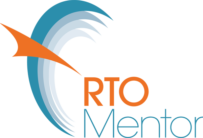As you know from previous posts your learning and assessment strategy provides a framework for your training and assessment of qualifications. Basically it says how you will structure the delivery and assessment arrangements.
Learning and assessment strategies are the big picture while such documents as learning programs and session plans are the detail of this picture. If you were to imagine that a learning and assessment strategy was a map of the world, then the countries that make up the world are the supporting documents that provide the detail of delivery and assessment.
The golden rule in developing your strategies is that they must provide a solution to the training that is relevant to the industry and workplaces in your target market and that they address relevant workplace needs.
Initially the strategy should be developed in consultation with industry when applying for Scope of Registration. Then, as often is the case, it sits on a shelf and gathers dust.
But then the aim is to use this valuable document to send to your potential industry partners for them to see how you will deliver the training and assessment for their employees (if that is your situation). This way by having industry review the strategy you are more able to demonstrate that you have had industry consultation.
For instance, your employer (client) might suggest some changes to meet their specific needs – perfect, a definite consultation with industry. The engagement you have established with them will enable you to develop your quality learning and assessment strategies in line with industry requirements and appropriate for their needs.
In some areas it will be less clear who specific corporate clients are because you have public courses at your premises. It may be necessary at times to consult with other stakeholders in industry such as training councils or industry bodies.
This process not only provides an evidence trail for auditors to see, but also builds confidence in the training and assessment decisions made by your business among your community; workers, industry and the broader stakeholders, enhancing the standing of training delivered through your RTO.
